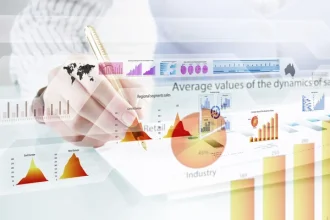Blockchain technology is making waves in various sectors, and government is no exception. As public agencies explore how to use blockchain for government operations, they are discovering its potential to improve transparency, security, and efficiency. This article will look at how blockchain can transform public services, the innovative applications being developed, the challenges faced in implementation, and what the future might hold for this technology in the public sector.
Key Takeaways
- Blockchain can significantly enhance transparency in government operations, making processes more accountable.
- It offers innovative solutions for public procurement and digital identity management, streamlining citizen services.
- Implementing blockchain faces challenges like regulatory hurdles and the need for interoperability between systems.
- Future prospects include integrating blockchain with other technologies to improve public services and foster financial inclusion.
- Collaboration between public and private sectors is essential for establishing standards and best practices in government blockchain initiatives.
Transforming Public Services Through Blockchain

Okay, so blockchain in government? It sounds super techy, but really, it’s about making things work better for everyone. Think about it: less red tape, more transparency, and services that actually make sense. It’s not just hype; it’s about fixing some real problems.
Enhancing Transparency in Government Operations
Government stuff can feel like a black box, right? Blockchain can help shine a light in there. It creates a record that everyone can see, so it’s harder to hide things. Imagine being able to easily track where your tax dollars are going. That’s the idea. It’s about accountability and making sure things are on the up-and-up. The blockchain technology can foster a new era of streamlined, secure, and transparent public services.
Streamlining Citizen Engagement
Ever feel like you’re shouting into the void when you try to deal with the government? Blockchain could change that. It can make things like voting more secure and easier to access. Plus, it can help with things like getting permits or licenses, making the whole process way less of a headache. It’s about making government more accessible and responsive to the people it serves.
- Secure online voting platforms
- Direct feedback mechanisms
- Simplified access to public records
Improving Data Security and Integrity
Data breaches are a nightmare, and governments hold a lot of sensitive information. Blockchain offers a way to keep that data safe and sound. It’s like a super-secure digital vault that’s really hard to crack. This means less risk of identity theft, fraud, and other nasty stuff. It’s about protecting citizens’ information and building trust in government systems.
Blockchain’s decentralized nature means data isn’t stored in one central location, making it much harder for hackers to access. This improves security and ensures that information remains accurate and reliable. It’s a big step up from traditional systems that are more vulnerable to attack.
Innovative Applications of Blockchain in Governance
Blockchain tech isn’t just for cryptocurrencies anymore; it’s making waves in how governments operate. Think about it: secure, transparent, and efficient systems are exactly what the public sector needs. Let’s look at some specific examples where blockchain is already shaking things up.
Blockchain for Public Procurement
Imagine a world where government contracts are completely transparent and free from corruption. That’s the promise of blockchain in public procurement. By recording every step of the process on a distributed ledger, from bidding to payment, it becomes much harder to manipulate the system. Dubai is already piloting a blockchain system to track and authenticate goods, ensuring compliance and reducing fraud in supply chains. This kind of transparency can save taxpayers money and build trust in government.
Digital Identity Solutions
Managing identities is a huge challenge for governments. Blockchain offers a secure and efficient way to verify and manage digital identities. Estonia, a leader in e-governance, uses blockchain to secure its citizens’ data and facilitate services like digital identification. This not only streamlines administrative processes but also ensures data integrity and reduces fraud. Think about how much easier it would be to access government services online with a secure, blockchain-based digital ID.
Land Registry Systems
Land registries are often plagued by fraud, disputes, and inefficiencies. Blockchain can provide a tamper-proof and transparent way to record property ownership. Countries like Georgia, Sweden, and the UAE have implemented blockchain-based land registries to streamline property transactions and prevent disputes. By securely recording ownership data on an immutable ledger, these systems reduce bureaucratic inefficiencies and foster trust among stakeholders. This makes property transactions faster, cheaper, and more secure for everyone involved.
Blockchain’s ability to decentralize and securely record transactions offers governments a powerful tool to revolutionize various domains, including public administration, finance, healthcare, and even voting systems. It’s about creating systems where information is not just centralized in a single repository but distributed across a network, enhancing both accessibility and reliability.
Challenges in Implementing Blockchain for Government
While blockchain offers some cool possibilities for government, it’s not all smooth sailing. There are definitely some hurdles to jump over before we see widespread use. It’s not as simple as just plugging in a new system; there are real-world issues that need attention.
Regulatory Fragmentation
One of the big headaches is the lack of clear, consistent rules. Different regions and countries have different ideas about how blockchain should be regulated, or if it should be regulated at all. This makes it tough for governments to implement blockchain solutions that work across borders. Imagine trying to build a secure system when the rules change depending on where you are – it’s a compliance nightmare!
Interoperability Issues
Another challenge is getting different blockchain systems to talk to each other. Government agencies often use different technologies, and making them work together can be a real pain. If different blockchain networks can’t communicate, it limits their usefulness. It’s like trying to send an email from Gmail to a service that only accepts Yahoo Mail – it just won’t work.
Resistance to Change
Let’s face it, governments aren’t always known for being quick to adopt new technologies. There can be resistance from people who are used to doing things a certain way, or who are worried about the risks of blockchain. Overcoming this resistance requires education, training, and a clear demonstration of the benefits. It’s about showing people that blockchain isn’t something to be feared, but something that can actually make their jobs easier and more effective.
Implementing blockchain in government isn’t just about the technology; it’s about changing mindsets and processes. It requires a willingness to experiment, learn, and adapt. It also means addressing concerns about security, privacy, and control. It’s a journey, not a destination, and it requires collaboration and open communication.
Future Prospects of Blockchain in Public Sector

Okay, so blockchain in the public sector? It’s not just hype. It’s got real potential to change how things work. We’re talking about making government more efficient, transparent, and trustworthy. But it’s not all sunshine and roses; there are definitely hurdles to jump.
Integration with Emerging Technologies
Blockchain isn’t going to exist in a vacuum. The real magic happens when it teams up with other tech like AI and IoT. Imagine smart cities using blockchain for secure data management and AI for traffic optimization. It’s like peanut butter and jelly – good on their own, but amazing together. Think about supply chain solutions, where blockchain tracks goods and AI predicts demand. It’s all about creating a more connected and responsive government.
Potential for Financial Inclusion
One of the coolest things about blockchain is its potential to bring more people into the financial system. For those who are unbanked or underbanked, blockchain can provide access to secure and transparent financial services. This could mean everything from easier access to loans to more efficient ways to receive government benefits. It’s about leveling the playing field and making sure everyone has a fair shot. It can also support cryptocurrency development.
Building Trust in Government
Trust in government? It’s been a hot topic for a while. Blockchain can help rebuild that trust by making government operations more transparent and accountable. When citizens can see how their tax dollars are being spent and how decisions are being made, it’s a game-changer. It’s about creating a system where everyone can see what’s going on and hold their leaders accountable. This is an essential commodity in any democratic society.
Blockchain offers a suite of benefits for the public sector that addresses many of the longstanding challenges in government operations. Its ability to enhance transparency and accountability is pivotal in building public trust. The security features inherent in blockchain make it a formidable tool against fraud and cyber threats, safeguarding sensitive government data and citizen information. Additionally, the operational efficiency and cost-saving potential of blockchain are undeniable, promising a more fiscally responsible and streamlined approach to public sector management.
Collaborative Efforts for Blockchain Standardization
Blockchain’s potential in government is huge, but to really make it work, everyone needs to be on the same page. That’s where collaboration and standardization come in. Think of it like this: if every country used a different electrical outlet, international travel would be a nightmare. The same goes for blockchain. If different government agencies and even different countries use completely different blockchain systems, it’ll be hard for them to talk to each other and share information. Standardization is key to unlocking the full potential of blockchain.
Public-Private Partnerships
Government can’t do it alone. Partnering with private companies that have blockchain expertise is super important. These partnerships can help develop standards that work for both the public and private sectors. It’s about bringing together the best minds and resources to create solutions that are practical and effective. For example, Colorado Smart Cities Alliance is a great example of how collaboration can drive innovation in urban environments.
International Cooperation
Blockchain is global, so standardization needs to be too. Countries need to work together to create common standards and protocols. This will make it easier for governments to share data and collaborate on cross-border initiatives. Imagine a world where customs agencies in different countries can seamlessly share information about shipments using blockchain. That’s the power of international cooperation.
Establishing Best Practices
Figuring out what works and what doesn’t is crucial. Governments need to share their experiences and develop best practices for using blockchain. This includes things like security protocols, data privacy measures, and governance models. By learning from each other, governments can avoid making the same mistakes and accelerate the adoption of blockchain. It’s like having a playbook for success. Here are some key areas where best practices are needed:
- Data security: Protecting sensitive information stored on the blockchain.
- Interoperability: Ensuring different blockchain systems can communicate with each other.
- Regulatory compliance: Meeting legal and regulatory requirements.
It’s often said that blockchain is a team sport. It’s a team sport because its success – its existence even – relies on a consortium of collaborators to work together in establishing technical protocols and governance models. By definition, as a distributed ledger technology, blockchain requires more than one player.
Enhancing Operational Efficiency with Blockchain
Blockchain tech isn’t just a fad; it’s a real tool for making government operations smoother and cheaper. It’s about using this tech to make things work better, save money, and cut down on problems.
Cost Savings in Public Administration
Okay, so how does blockchain actually save money? Well, a big part of it is automation. Smart contracts innovative technologies can automate tasks, cutting down on the need for people to do things manually. Think about it: less paperwork, fewer errors, and faster processes. For example, imagine how much time and money could be saved by automating benefits distribution or grant making. It’s not just about cutting costs; it’s about freeing up resources to focus on other important things.
Real-Time Data Sharing
One of the coolest things about blockchain is how it handles data. Instead of having data locked up in different systems, blockchain lets everyone share information in real-time. This means better coordination, faster decision-making, and fewer delays. Imagine a supply chain where everyone knows exactly where everything is at all times. No more guessing, no more delays, just smooth, efficient operations. It’s like having a consolidated database that everyone can access.
Reducing Fraud and Corruption
Blockchain can also help fight fraud and corruption. Because every transaction is recorded on a public ledger, it’s much harder for people to get away with shady stuff. Plus, smart contracts can enforce rules automatically, making sure everyone plays by the book. This can be a game-changer for things like taxes and benefits distribution, where fraud is often a problem. It’s about building trust and accountability into the system.
Blockchain’s ability to create immutable records and automate processes can significantly reduce the risk of fraud and corruption in government operations. This not only saves taxpayer money but also increases public trust in government institutions.
The Role of Blockchain in Digital Finance
Blockchain tech is making waves in the world of digital finance, and it’s not just about cryptocurrencies anymore. Governments and financial institutions are exploring how this tech can reshape the way we handle money and transactions. It’s a pretty big deal, and it’s changing things faster than many people realize.
Facilitating Secure Transactions
One of the biggest advantages of blockchain is its security. Every transaction is recorded on a distributed ledger, making it super hard to tamper with the data. This is a game-changer for financial transactions, where security is paramount. Think about it: fewer chances of fraud, less need for intermediaries, and faster, more reliable transactions. It’s like upgrading from snail mail to instant messaging, but for money.
Promoting Economic Growth
Blockchain can also help boost economic growth, especially in areas where traditional banking is lacking. By providing a secure and transparent way to conduct transactions, it opens up opportunities for businesses and individuals who might have been excluded before. Imagine small businesses in developing countries being able to access global markets more easily, or individuals being able to send and receive money without hefty fees. It’s all about leveling the playing field and fostering innovation. For example, governments are exploring CBDC initiatives to bridge traditional finance and emerging technologies.
Supporting Cryptocurrency Regulations
Of course, with any new technology, there are regulatory challenges. Cryptocurrencies are no exception. Governments around the world are grappling with how to regulate these digital assets, and blockchain can play a key role in this process. By providing a transparent and auditable record of transactions, it can help regulators monitor the market, prevent illicit activities, and protect consumers. It’s about finding the right balance between fostering innovation and ensuring stability. Some countries are even creating regulatory sandboxes to stimulate innovation in the finance and payment systems space. Here’s a quick look at some potential benefits:
- Enhanced transparency
- Reduced fraud
- Improved regulatory oversight
Blockchain’s potential to transform digital finance is undeniable. As governments and financial institutions continue to explore its capabilities, we can expect to see even more innovative applications emerge in the years to come. It’s an exciting time, and it’s only just the beginning.
Looking Ahead: The Future of Blockchain in Government
In wrapping up our discussion on how blockchain can reshape government, it’s clear that this technology is more than just a buzzword. It’s becoming a key player in how public services are delivered. We’ve seen how blockchain can boost transparency, cut costs, and improve efficiency in various government functions. As we move forward, it’s likely that we’ll see even more governments adopting blockchain to enhance their operations. Sure, there are still hurdles to overcome, like regulations and tech challenges, but the potential benefits are too significant to ignore. By embracing blockchain, governments can not only modernize their systems but also build greater trust with the public. The road ahead is promising, and it’s exciting to think about how blockchain will continue to evolve in the public sector.
Frequently Asked Questions
What is blockchain technology?
Blockchain is a digital system that records information in a way that makes it hard to change or hack. It keeps data secure and transparent.
How can blockchain improve government services?
Blockchain can make government services more transparent, faster, and safer by securely sharing information and reducing fraud.
What are some examples of blockchain in government?
Some examples include using blockchain for land registries, digital identities, and public contracts to track spending and ensure fairness.
What challenges do governments face when using blockchain?
Governments face challenges like outdated laws, technical difficulties, and reluctance to change how things are done.
How does blockchain help with data security?
Blockchain protects data by storing it in many places instead of one single spot, making it harder for hackers to access or change it.
What does the future hold for blockchain in government?
The future looks promising, with blockchain likely becoming a standard tool in government for better services, trust, and efficiency.

Peyman Khosravani is a seasoned expert in blockchain, digital transformation, and emerging technologies, with a strong focus on innovation in finance, business, and marketing. With a robust background in blockchain and decentralized finance (DeFi), Peyman has successfully guided global organizations in refining digital strategies and optimizing data-driven decision-making. His work emphasizes leveraging technology for societal impact, focusing on fairness, justice, and transparency. A passionate advocate for the transformative power of digital tools, Peyman’s expertise spans across helping startups and established businesses navigate digital landscapes, drive growth, and stay ahead of industry trends. His insights into analytics and communication empower companies to effectively connect with customers and harness data to fuel their success in an ever-evolving digital world.











